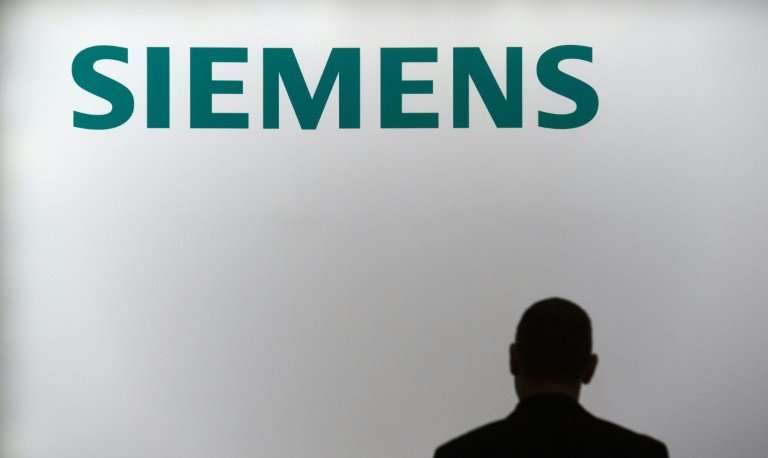Siemens, which runs its business year from October to September, said net profit jumped by 12 percent to 2.2 billion euros ($2.7 billion) in the three months to December
German engineering giant Siemens said Wednesday that profits jumped in the first quarter, driven by rising demand for its products in areas ranging from renewable energy and trains to industrial robots.
Siemens, which runs its business year from October to September, said in a statement net profit jumped by 12 percent to 2.2 billion euros ($2.7 billion) in the three months to December.
Underlying or operating profit was also up 12 percent at 2.2 billion euros while first-quarter sales grew by three percent to 19.8 billion euros.
Chief executive Joe Kaeser said Siemens was "taking advantage of the global economic upturn."
By division, Siemens said that orders at its wind energy unit surged after a merger with Spanish firm Gamesa was finalised, even if profits shrank slightly over the quarter.
In the factory automation division, orders and revenue jumped, especially in China, although the effects of a recent acquisition sapped profits.
The train construction division, which recently announced a tie-up with French rival Alstom, reported a surge in orders, revenue and profits after it secured new contracts in Europe, Israel and the United States and its latest high-speed trains entered service in Germany.
The medical devices business saw orders, revenue and profits fall back slightly in the first quarter, due to "significant currency headwinds", but Siemens said the unit remained on track for a stock market flotation later this year.
In the power and gas division, profits fell by almost half and orders and revenue declined as demand for its power plant turbines fell away.
Siemens announced a massive restructuring in November, cutting nearly 7,000 job cuts worldwide in the traditional power plant building business.
Looking ahead to the full year, Siemens was more cautious, saying that continuing headwinds in the energy market and "geopolitical uncertainties" painted a more "mixed picture".
It said it was pencilling in "modest growth in revenue" and earnings per share around the same level as in the 2016/2017 business year.
© 2018 AFP






















